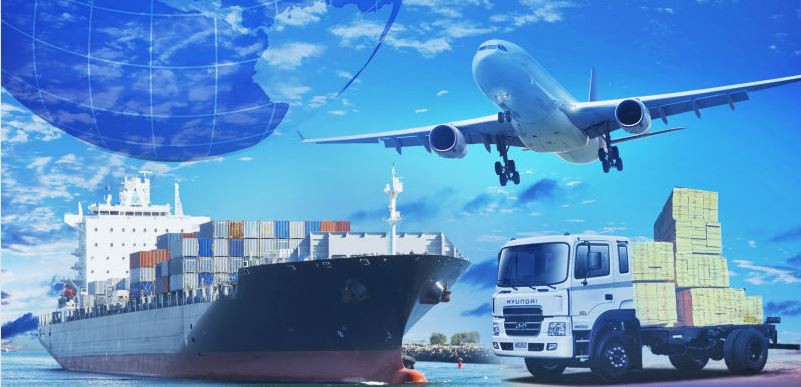The 5 Components of International Logistics That May Affect Your Experience with Freight Forwarders

The freight forwarding industry has made quite a dent in traditional logistics, and many companies compete at the top of the game. However, satisfying every client’s needs takes more than good customer service. You must learn about the components of international logistics affecting your experience with freight forwarders to give yourself the best chance of success as you work with them. Here are elements of global logistics that will affect your experience with freight forwarders and how you can use that information to help find the right one for your import or export business.
-
Shipping Services
Shipping services are a crucial component in freight forwarding for international businesses. The type of shipping service you choose must match the size and weight of your shipment. LTL, or less than truckload, shipping services are for payloads up to 20 feet long and up to 2,000 pounds. Anything more significant will require FTL or full truckload service. If you’re looking for faster transit times and can be flexible on delivery location, then air freight is your best option.
Sea freight offers very affordable rates but has a much longer transit time (typically six weeks). Identifying the type of shipment service you require can help you select the most appropriate logistics company for your needs. However, a reliable company like Liverpool freight forwarding company will be able to meet your expectations regardless of the type of service you need, as well as provide valuable advice about how best to navigate any obstacles along the way.
-
Warehousing Management
A warehouse is an essential element in the logistics chain. When there is a need to move goods from one location to another, the warehouse will handle this task’s volume and physical aspects. A well-managed warehouse can provide substantial cost savings. One way it does this is by using specialized equipment that reduces labor costs, such as conveyor belts or forklifts. The more efficient the warehouse operations are, the more money you save and the less time it takes for materials to get where you need them.
However, personalized storage solutions may be necessary if goods require special storage conditions. For example, temperature-controlled warehouses will help deal with delicate electronics. A reliable logistics company should be able to efficiently execute your warehousing management needs, whether you’re dealing with designer bags, sneakers, IT equipment, or any other type of product. They should have various types of space available for storing goods and know how to maintain a safe environment for every product they hold.
-
Customs Clearance
International trade, by definition, is an exchange of goods and services across national borders. Each country has its own set of customs requirements for imports and exports. However, every item you import or export will require customs clearance before sending to your location. The process may involve several other agencies in the exporting and importing countries. Items prohibited in one country might not be a problem in another – and vice versa – so these factors will also affect how you do your business.
Also, while most items require payment of duties, some have a duty-free limit. If your shipment exceeds this limit, you may need to pay duty on the excess amount. Due to the complex issue sorrounding international shipping, it’s crucial to hire an experienced freight forwarder to help facilitate cross-border trade and provide value-added services such as compliance documentation, pre-arrival processing, warehousing, and inventory management.
-
Technology and Digital Transformation
Cross-border e-commerce will continue to grow even in the foreseeable future. The Internet makes shopping easier and more accessible than ever. Still, even international shoppers must familiarize themselves with the technological components of global logistics that may affect their experience with freight forwarders. For example, customs clearance mainly involves lodging a custom declaration form online.
Customers need to provide detailed information on the items they are importing, including descriptions, quantities, purchase price, value in foreign currency, name of shipper or supplier, address where goods were purchased or shipped from, and contact details for both sender and recipient. However, for accuracy’s sake, customers should hire an experienced freight forwarder. They will help eliminate misleading or false statements and upload documents such as invoices and packing lists as evidence of legitimacy.
-
Pricing
Freight forwarding is a necessary part of international logistics and offers many benefits, such as affordability, security, reliability, flexibility, and capacity. However, the pricing of freight forwarding may vary widely depending on;
- Your location in the globe
- The cost of handling your goods
- The place of delivery and expense of delivery
The total price will depend on the service that best suits your needs when you want to ship.
It’s, therefore, essential to work with a forwarding company that is transparent in its charges, has a history of providing exceptional customer service, and offers personalized quotes based on your specific requirements. You can get an instant estimate online or speak with someone directly over the phone or through email.
Conclusion
Freight forwarding is a global logistics service that facilitates the movement of goods from one country to another. Unfortunately, international freight forwarding can have a lot of potential pitfalls. For example, tariffs, taxes, and documentation requirements differ from country to country, and these obstacles may affect your experience working with freight forwarders. It’s, therefore, crucial to hire an experienced freight forwarder who has mastered all the intricacies of international logistics.